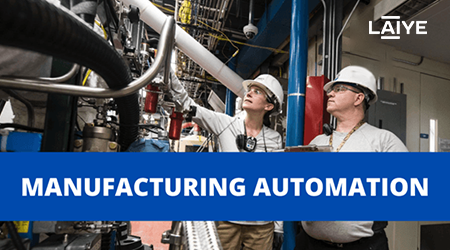Supercharge your Factory: Use Cases of Intelligent Automation in Manufacturing

The global manufacturing industry is entering a period of heightened challenges: geographical tension, supply chain disruptions, evolving tax and transfer pricing regulations, etc.
To overcome these challenges, decision-makers must accelerate digital transformation by actively seeking solutions of intelligent automation in manufacturing. With the help of robotic process automation (RPA) and AI, some workflows can be streamlined and standardized, with a focus on higher-value, strategic tasks.
Let's see how automation can boost work efficiency in the manufacturing industry.
Managing Data of Suppliers and Materials
Automatic data processing (ADP), the ability to handle the unstructured data of suppliers and materials, is a basic requirement for the automation platform.
Optimize Resource Consumption
Identify waste patterns and adjust operations to reduce energy costs.
Inventory Alerts
Trigger maintenance alerts through data-backed interventions and form business insights.
Scheduling Optimization
Use real-time data to dynamically adjust production schedules and minimize downtime.
Boost Administrative Efficiency
Streamline paperwork to avoid human entry errors with the help of intelligent document processing (IDP).
Automated Invoice Processing
Using OCR (Optical Character Recognition)to extract key details like the amount and invoice number. Filling the fields will be later triggered in automation.
Document Classification
Analyze different types of documents, such as orders, inventories, and invoices, and archive them into different catalogues.
Risk Mitigation
Collect data and generate compliance reports of your suppliers and your industry automatically to catch up with market trends.
Optimize Planning and Quality Control
Intelligent automation can even bring unique value to the production lines of factories.
Smarter Production Scheduling
Analyze customer demand and available materials to suggest an optimized production schedule, making sure you can access resources efficiently.
Accurate Data for Quality Control
Detect defects right on the production line by analyzing product images and details.
Optimized Resource Consumption
Identify waste patterns and adjust operations to reduce energy costs.
AI Agents for Manufacturing
The future of automation in manufacturing isn't just about RPA. The latest trend is using AI Agents to take efficiency to the next level. For example, some companies are now using AI to automate the qualification of new business leads. This helps the sales team prioritize high-potential customers, which can significantly boost the conversion rate and lower overall labor costs. To see this in action, be sure to check out our success stories.
Conclusion
Taking over the tedious, repetitive tasks, intelligent automation allows employees to focus on valuable work, like problem-solving and innovation.
Laiye combines Robotic Process Automation (RPA), Intelligent Document Processing (IDP), and AI agents in our Work Execution Platform. We help companies in manufacturing improve efficiency and further boost the overall ROI. Contact us to empower your organization with intelligent automation!





